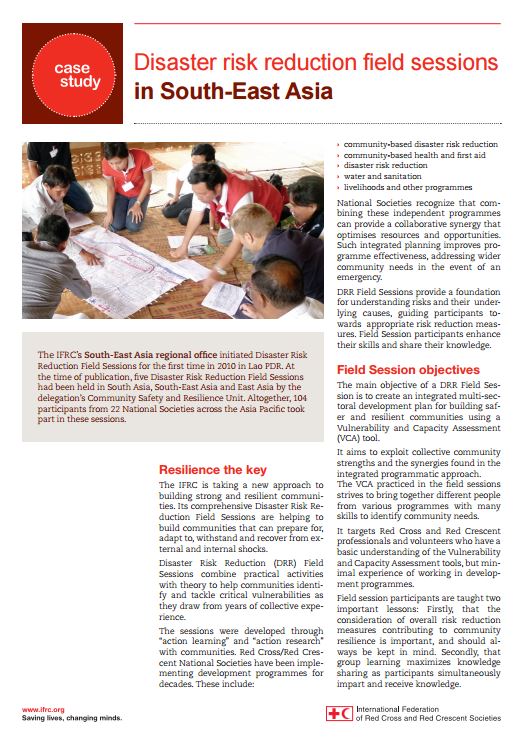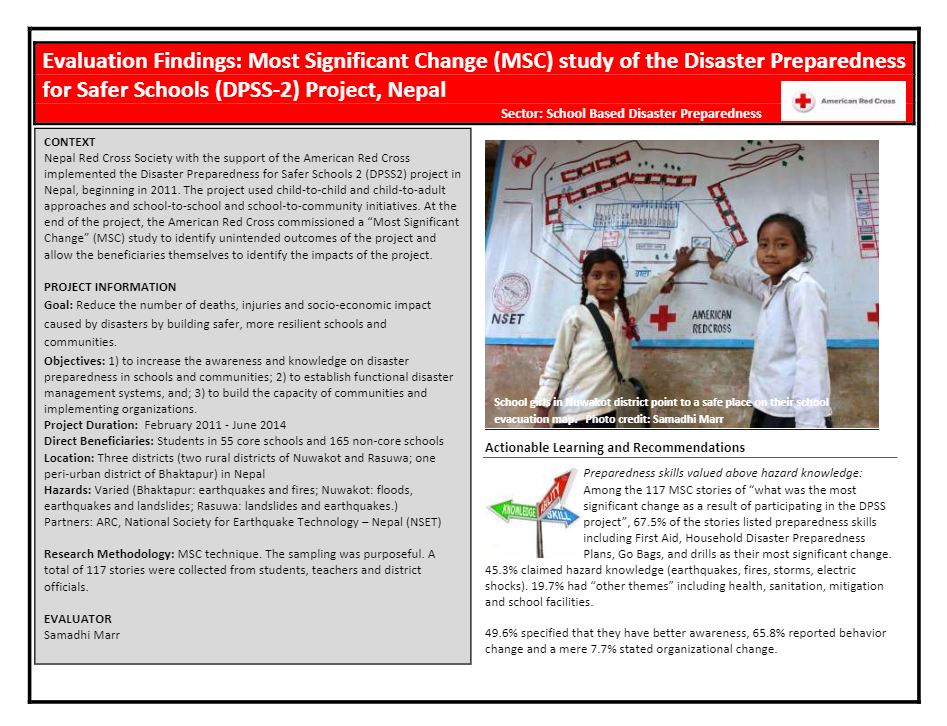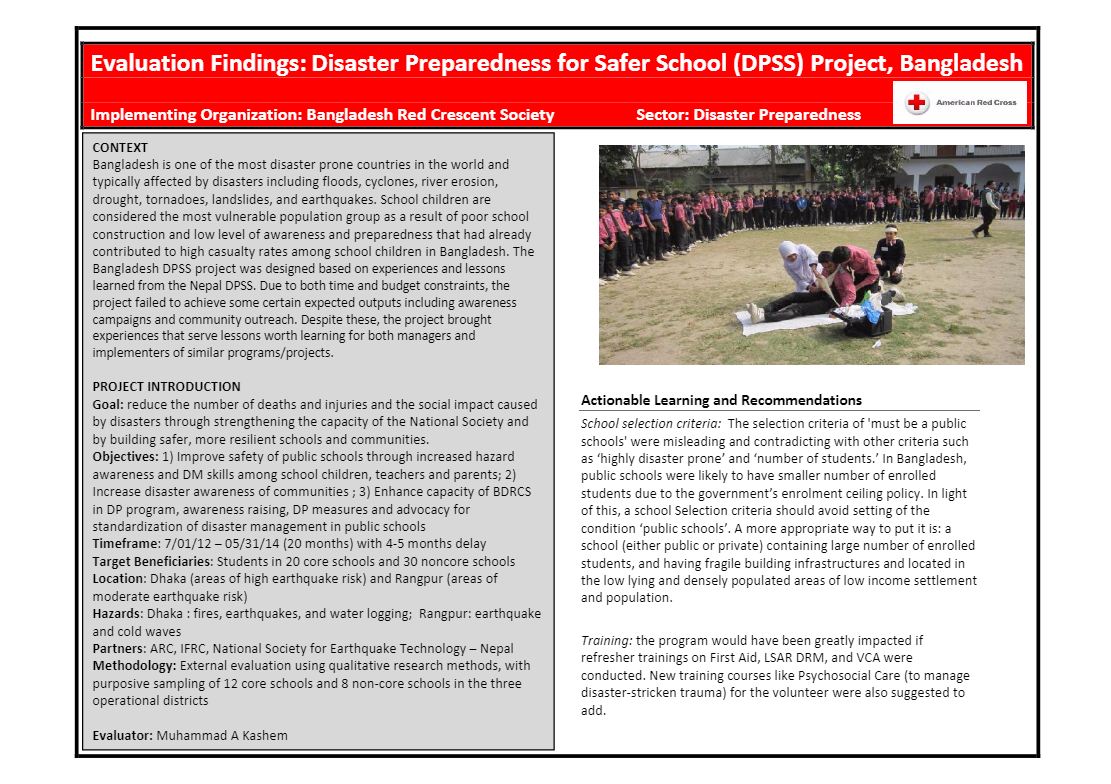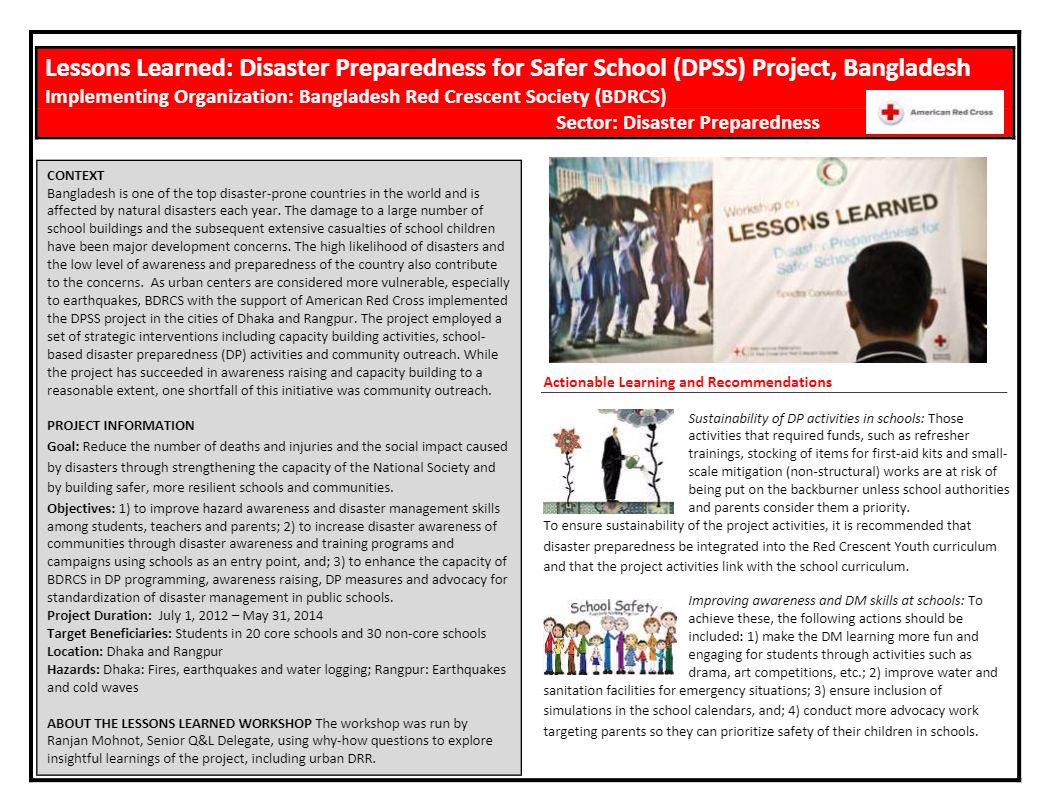Asian Ministerial Conference on Disaster Risk Reduction 2018 | 3-6 July 2018 | Ulaanbaatar, Mongolia
The Asian Ministerial Conference on Disaster Risk Reduction (AMCDRR) is the regional platform for dialogue and action on DRR, under the Sendai Framework for Disaster Risk Reduction (SFDRR)1. Since its inception in 2005, the biennial Conference has met in: Beijing 2005, New Delhi 2007, Kuala Lumpur 2008, Incheon 2010, Yogyakarta 2012, Bangkok 2014 and New Delhi 2016. Each of the seven Asian Ministerial Conferences has adopted a political declaration and developed action plans that reaffirmed commitment to strengthen disaster resilience and renew regional approaches to implement first the Hyogo Framework for Action and now the SFDRR.
AMCDRR 2018 represents a key milestone to reflect on regional progress against the SFDRR three years since its adoption. Governments and key DRR stakeholder groups from across Asia, Central Asia and Iran are invited to participate. Participants from the Pacific are invited as observers.
This year, Mongolia will play host to the 8th Asian Ministerial Conference on DRR which will be held in Ulaanbaatar, Mongolia from 03 – 06 July 2018. More information and background to the Conference can be found here.
Relevant reads:
- Red Cross Red Crescent Engagement in AMCDRR 2018
- Red Cross and Red Crescent Contributions to AMCDRR 2018
![]()
Launch of DRR and Law: Checklist Assessment Report in Indonesia
Indonesia continues to demonstrate its global leadership on disaster risk management, with its recent launch of its Strengthening Law and Disaster Risk Reduction in Indonesia: Checklist Assessment Report in Jakarta. The research undertaken by Indonesia Red Cross (PMI) and IFRC, with financial support provided by the Government of Canada and Canadian Red Cross, provides an assessment of Indonesia’s legal and policy framework for disaster risk reduction, using the Checklist on the Law and DRR which was developed jointly by UNDP and IFRC. The Checklist supports government and other stakeholders to assess their country’s laws and policies against ten key areas – from how well integrated DRR is integrated in sectorial laws like education, housing and land use planning to how community participation is mandated in risk reduction decision making.
Tsunami, including the development of a very sophisticated disaster management legal system – there are some areas that require further attention. These issues relate to, among others, stronger institutional mechanisms for horizontal coordination on DRR across the sectors, as well as vertical coordination from national to village level. There also needs to be greater priority placed on implementation, particularly at the village level and ensuring communities are actively engaged in decision making. The report clearly lays out recommendations under each of the checklist questions on ways that risk reduction can be better integrated into the laws and regulations in Indonesia and provides a strong evidence base for future action.
The report was launched as part of the Partners for Resilience (PfR) event held in Jakarta on 30 November 2016. Partners for Resilience is an alliance of humanitarian, development, climate and environmental civil society organizations globally, including in in Indonesia who work together to promote the application of Integrated Risk Management (IRM) to strengthen and protect livelihoods of vulnerable communities, primarily against climate-related natural hazards, and with special attention for inclusivity and the role of gender. The DRR and Law report provides a strong evidence base for their ongoing advocacy and influence efforts in Indonesia. PMI and IFRC will continue to work through this alliance to ensure that recommendations from the report are considered and acted on in Indonesia.
This update is also published in ifrc.org at this link.
See also:
- Strengthening Law and Disaster Risk Reduction (DRR) in Indonesia – Checklist Assessment Report
- Checklist on Law and Disaster Risk Reduction
- Strengthening law and disaster risk reduction (DRR) in Indonesia – Consultation Workshop | 29 Feb 2016 | Indonesia
![]()
Case study: Disaster risk reduction field sessions in Southeast Asia
Purpose:
This document provides an overview of the disaster risk reduction field sessions conducted in Southeast Asia.
Overview:
A DRR Field Session is carried out over ten days. Participants spend three days in the field and seven days in the classroom. These ten days are made up of practical work, group activities and theory, in a workshop setting. The entire process promotes peer learning and enhances skills based on logic and reality.
There are two scenarios in every field session. The first is a case study and the second is a real situation – one that places participants directly in contact with a community that needs assistance. These scenarios are designed to test and sharpen a participant’s skills and knowledge about:
- comprehensive assessment techniques
- collected information and their systematic organization
- translating processes from vulnerabilities into potential capacities
- developing related strategies, and writing a plan of action
Usage: Guidance for implementation
Audience: National Society staff and volunteers
![]()
Evaluation Findings [brief] – Disaster Preparedness for Safer Schools Project, Nepal
Purpose:
The brief details evaluation findings from the Disaster Preparedness for Safer Schools Project in Nepal conducted by American Red Cross and Nepal Red Cross Society.
Overview:
Evaluation Findings [brief]/Recommendations:
- Project design,
- sensitizing school headmasters,
- collaboration (with local government),
- engaging school management committees,
- child-to-child approach,
- child-to-adult approach,
- training design,
- household disaster preparedness plan,
- disaster learning centres,
- vulnerability and capacity assessment (VCA) / Disaster preparedness plan,
- drills,
- evacuation map,
- DRR mainstreaming,
- IEC materials and utilization,
- monitoring and evaluation,
- WASH activites,
- exposure trips,
- staff capacities
- gender
Usage: Guidance for implementation
Audience: National Society school safety practitioners
![]()
Most Significant Change [brief] – Disaster Preparedness for Safer Schools Project, Nepal
Purpose:
The brief details the most significant change as the findings from the evaluation conducted in Disaster Preparedness for Safer Schools Project, Nepal, by American Red Cross and Nepal Red Cross Society.
Overview:
Evaluation findings: The most significant changes involve:
- Preparedness skills valued above hazard knowledge,
- first aid training,
- child-to-adult approach,
- appropriate time of trainings and number of trainees,
- drills,
- sustainability strategy,
- vulnerability and capacity assessment (VCA)/Disaster Preparedness plan,
- outreach to private schools.
Usage: Guidance for implementation
Target: National Society school safety practitioners
![]()
Evaluation findings – Disaster Preparedness for Safer School Project in Bangladesh
Purpose:
This brief details the evaluation findings from the Disaster Preparedness for Safer School Project in Bangladesh, conducted by American Red Cross and Bangladesh Red Crescent Society.
Overview:
Evaluation findings/recommendations:
- School selection criteria
- training
- evacuation maps
- structural mitigation
- support from adults for child-participation
- design of student disaster safety clubs
- school cooperation
- holistic approach
- vulnerability and capacity assessment (VCA)
Usage: Guidance for implementation
Target: National Society school safety practitioners
![]()
Lessons Learned – Disaster Preparedness for Safer School Project in Bangladesh
Purpose:
This document provides a briefing on lessons learned from the Disaster Preparedness for Safer School project in Bangladesh conducted by American Red Cross and Bangladesh Red Crescent Society.
Overview:
Lessons learned/recommendations include:
- Sustainability of disaster preparedness activities in schools
- Improving awareness and disaster management skills at schools
- Sensitizing stakeholders, urban disaster risk reduction
- Community outreach strategies
- Stakeholder participation in project design
- Training design
- Support from adults for child participation
- Vulnerability and capacity assessment (VCA)
- Advocate for school safety in curriculum.
Usage: Guideline for implementation
Audience: National Society school safety practitioners
![]()



![Evaluation Findings [brief] - Disaster Preparedness for Safer Schools Project, Nepal - School Based Risk Reduction](https://www.rcrc-resilience-southeastasia.org/wp-content/uploads/2016/09/Capture-171.jpg)


